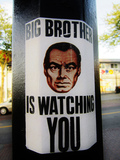
The visa waiver program (VWP) enables nationals of 38 countries to enter the US for up for 3 months without a visa. It facilitates low-risk travel for trade and business from allied countries. Nationals of those countries enjoy visa-free entry into the US, but that does not mean no screening. VWP participants must have a valid, approved electronic system for travel authorization (ESTA) before being allowed into the US. And ESTA has always required a determination that the foreign national is not a threat, has no prior violations, and pass a background check specially designed to uncover hidden grounds of inadmissibility to the United States.
Yet now CBP wants to see your shares, tweets, and snaps.
San Bernardino shooter Tashfeen Malik entered the US on a K-1 fiancée visa, not under the VWP. But DHS (the parent agency of CBP) nevertheless bemoaned an inability to see her social media. On December 18, 2015, President Obama signed the Visa Waiver Program Improvement and Terrorist Travel Prevention Act of 2015 into law, authorizing travel restrictions for VWP applicants who were of Iranian, Iraqi, Syrian or Sudanese origin, or who had visited those countries in the last 5 years. Jeh Johnson, Secretary of DHS, said social media accounts were off-limits for vetting immigrants to the US. But he later noted that his office did in fact review social media. Of course, there's been a memo from back in 2008 directing at least one DHS agency on how to use social media to vet applicants. None of my colleagues at the immigration bar were fooled for a moment by any of this talk: We know DHS looks at our clients' social media accounts.
Big Brother is not only watching, he is telling you he now wants permission to view your social media, as if he hasn't been watching all along. Policies like this further play into the narrative of immigrants as people to be feared. CBP says it's "optional" - but what happens to people who decide not to give their information? Will they be denied or subjected to even higher scrutiny? If you do give your information, who will it be shared with? What other agencies may have access to it?
How might a nameless, faceless agent react to your Facebook posts? Would the agent get your humor, undertones, or inside jokes? What about the people you're connected to - their humor, undertones, and inside jokes? What if the agent disagrees with your politics? Religion? Netflix queue? What if your retweet really is an endorsement? Would this op-ed make you a "person of interest" if you shared it?
If there's an articulable suspicion that a foreign national may be up to no good, then by all means, investigate. But pressuring everyone to turn over their social media information once again casts a wide net in hopes of catching someone. Pressure to yield results is born - and no one likes to come up empty time and time again.
Giving up privacy in exchange for security is certainly not new, but it does seem to be the norm these days. It helped Britain exit out of the EU. It's why we still have to deal with annoying misinformed tweeting politicians. It's why many people are getting insulted, beat up, and even killed. It's where divisive policies are born.
Let CBP know if they want to know more about you, do what everyone else has to do: send a friend request.



 RSS Feed
RSS Feed
